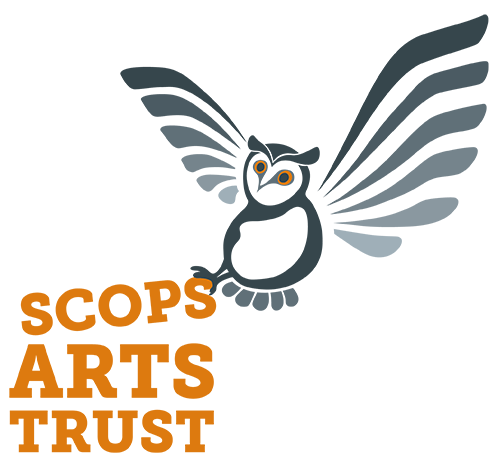If you are currently receiving a grant from Scops Arts Trust, this page gives guidance on how we would like you to report to us about the work we are funding.
Scops Arts Trust aims to be an engaged funder and we welcome invitations to visit your organisation over the course of the funded period to observe your project in action, speak with your participants and see firsthand the great work you are delivering. Consequently, we do not consider that a formal interim report is necessary, although we would like a brief email update around 6 months after you have received the grant to tell us how your project is progressing.
At the end of the funded period, and no later than 3 months after the completion of your project, please send us a final evaluation report by email to info@scopsartstrust.org.uk
The report should be a maximum of 4 sides of A4.
If you have received a pledge from Scops Arts Trust for a multi-year grant award, we expect to see a satisfactory end-of-year report before the next year’s grant is released. Please ensure that you submit your report around 12 months after you received a grant payment to allow us to approve the release of the next grant payment and adhere to our funding schedule. Even if your project delivery schedule is not the same as the funded period (12 months from the date of grant payment), we still expect you to submit as full a report as you are able to provide.
While writing your report, always keep in mind the overall aim of Scops Arts Trust, to give people a better quality of life through experiencing the arts, and you should try to communicate how your organisation achieved this. But we also know that projects rarely run exactly to plan and so it’s helpful for us to hear about any challenges you faced, how you adapted, what you learned and how this might influence what you do in future.
Rather than filling out a form, we want to give you the freedom to create your own report, but there are a few things we would like to see included:
- Activities you carried out, including quantitative information such as the number of workshops and/or performances and the number of participants
- Who benefited and how – the outcomes of your work, i.e. the differences or changes the project has made to your participants. Consider using positive change words such as ‘increasing’, ‘growing’, ‘enhancing’, ‘reducing’, ‘strengthening’.
- Short case study
- Photos
- Quotes from your participants

